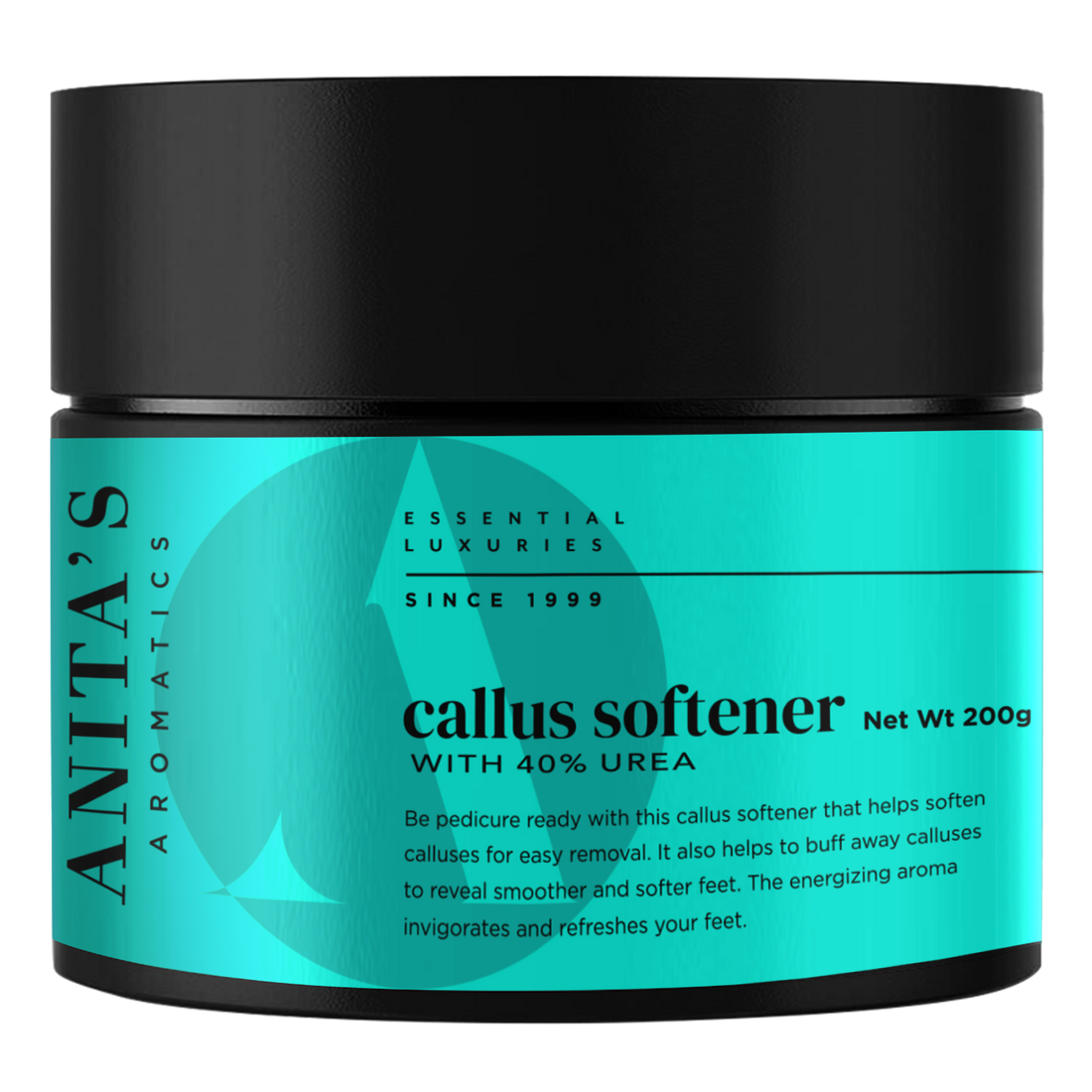Calluses, those thickened patches of skin that develop in response to friction and pressure, can be bothersome and unsightly. While they serve as a protective mechanism, calluses can sometimes become painful and require attention. This essay explores effective treatment tips to bid farewell to calluses and restore comfort and beauty to our hands and feet.
About Calluses & Treatment
Calluses form when the outermost layer of the skin, the epidermis, thickens in response to repetitive friction or pressure. This process helps to reduce the risk of painful blisters and skin damage. Our body's ability to adapt and develop calluses showcases its remarkable capacity to protect and heal itself. They usually form on the hands and feet, where the skin endures constant rubbing from various activities or ill-fitting shoes. While calluses are not harmful, they can become problematic if they grow too thick or cause discomfort.
What are the effective treatment tips?
- Soak and Exfoliate: Begin the treatment by soaking the affected area in warm, soapy water for about 10-15 minutes. This softens the callused skin, making it easier to remove dead skin cells. Gently exfoliate the callus with a pumice stone or foot file, but be cautious not to overdo it, as excessive exfoliation can irritate the skin.
- Moisturise Regularly: Keeping the skin moisturised is crucial in preventing calluses from worsening. Apply a rich moisturiser or foot cream to the affected area daily, especially after exfoliation. Moisturising helps keep the skin soft and reduces the chances of calluses becoming painful.
- Proper Footwear: Ill-fitting shoes are a common cause of calluses. Opt for comfortable and well-fitted footwear that allows your toes to move freely. Avoid high heels or shoes that put excessive pressure on specific areas of the feet.
- Avoid Cutting Calluses: Attempting to cut or shave off calluses at home is risky and can lead to infection or injury. Leave cutting or trimming to a healthcare professional who can safely remove the callus if necessary.
Why do calluses keep growing back?
Calluses keep growing back because they are the skin's natural response to repeated friction and pressure. This protective mechanism aims to prevent further damage to the underlying tissues and create a cushion to reduce discomfort. Several other factors contribute to the recurrence of calluses:
Footwear: Wearing shoes that do not fit properly or lack adequate cushioning can lead to continuous friction and pressure on certain areas of the feet. This can cause calluses to develop and persist.
Dry Skin: Dry skin is more prone to callus formation. If the skin is not adequately moisturised, it becomes more susceptible to developing calluses.
Genetics: Some individuals are more predisposed to developing calluses due to genetic factors that influence skin thickness and texture.
Foot Structure: People with certain foot structures or abnormalities may experience more pressure on specific areas of their feet, leading to the formation of calluses.
Calluses care for feet & hands:

Are calluses at different body parts treated differently?
Yes, calluses at different body parts may require slightly different treatment approaches based on the unique characteristics and challenges of each area.
- Calluses on Feet:
- Use a pumice stone or foot file to gently exfoliate the callus after soaking
- Use silicone or moleskin padding to protect the feet from further irritation.
- Calluses on Hands:
- Soaking the hands in warm, soapy water to soften the callused skin.
- Wearing gloves during activities that cause friction or pressure on the hands.
What's the difference between Calluses Treatment at Spa & the Doctor?
When considering treatment options, individuals often wonder whether to seek help at a spa or consult a healthcare professional, such as a doctor or podiatrist. Note this down!
When to Choose Spa Treatment: Spa treatments are suitable for individuals with mild calluses seeking temporary cosmetic improvement and relaxation. If the calluses are not causing significant discomfort or complications, a spa treatment can offer a quick fix and a pleasurable experience.
When to Choose Doctor's Treatment: For individuals with persistent or painful calluses, or those with underlying foot or gait issues contributing to callus formation, seeking medical attention from a doctor or podiatrist is crucial. They can provide expert advice, identify the root cause of the callus, and offer tailored treatment plans to manage the condition effectively.
Homoeopathy & Ayurveda for calluses:
Homoeopathy and Ayurveda offer natural approaches to treat calluses based on individual symptoms and constitution. Homoeopathic remedies are selected based on specific symptoms, while Ayurvedic treatments focus on balancing the doshas and promoting overall well-being. Consulting qualified practitioners in these systems of medicine is essential to receive personalised treatment and achieve effective results in saying goodbye to calluses.
Are there any homoeopathic medicines for Calluses?
Here are some commonly used homoeopathic medicines for calluses:
- Antimonium crudum: This remedy is indicated for calluses that are hard and thick. It is also useful for corns and calluses with a tendency to crack or become inflamed.
- Graphites: Graphites are beneficial for dry, rough, and cracked calluses. It is particularly useful for calluses that form on the feet or toes.
- Silicea: Silicea is prescribed when there are calluses with painful and suppurating (pus-forming) tendencies.
- Thiosinaminum: This remedy is considered when the calluses are associated with scar tissue or adhesions.
What are Ayurvedic measures to treat calluses?
- Herbal Oils: Applying herbal oils like sesame oil, coconut oil, or castor oil to the callused area can help soften the skin and reduce the thickness of the callus. Some Ayurvedic practitioners may add specific herbs or spices to the oil for added benefits.
- Panchakarma: Panchakarma is a set of Ayurvedic detoxification therapies that may be recommended for some individuals with persistent calluses. These therapies aim to cleanse the body and remove accumulated toxins.
- Herbal Pastes: Preparing a paste using turmeric, aloe vera, or neem leaves and applying it to the callus may promote healing and soothe the affected area.
What are some home tips for calluses?
Calluses can be treated at home using simple remedies. Here are some effective home tips:
- Coconut Oil or Olive Oil: Massaging coconut oil or olive oil onto the callused area can help to soften the skin and promote healing. Cover the treated area with a clean cotton sock or glove overnight for better absorption.
- Epsom Salt Foot Soak: Add Epsom salt to warm water and soak your feet for 15-20 minutes. Epsom salt can help soothe tired feet, reduce inflammation, and aid in callus reduction.
- Aspirin Paste: Crush a few aspirin tablets and mix them with water to form a paste. Apply the paste to the callus, cover it with a bandage, and leave it on for a few hours or overnight. Aspirin contains salicylic acid, which helps to soften the callus.
- Apple Cider Vinegar Soak: Mix equal parts of apple cider vinegar and warm water and soak your feet or hands for 15-20 minutes. The acidic properties of vinegar can help soften the callus.
Pedicure & Calluses: How are pedicures and calluses connected?
Pedicures and calluses are connected as pedicures include the removal of calluses and the exfoliation of the feet to promote smoother and softer skin. By addressing calluses during a pedicure, individuals can enjoy both cosmetic improvements and enhanced foot health, leaving them with a sense of comfort and confidence in their well-groomed and pedi-ready feet.

At Anita Aromatics, we make sure your feet get the pampering they deserve with iORA Callus Softener. This is your ultimate solution to transform your tired, callused feet into a pedicure-ready treat! Our product is packed with the power of skincare ingredients like Shea Butter, Salicylic Acid, Tea Tree Oil, Urea, Allantoin, and D-Panthenol so that it works wonders in breaking down toughened, hardened areas of skin, making them a breeze to remove. So, say goodbye to those uncomfortable and unsightly calluses, and embrace the beauty of smooth, soft feet with iORA.




